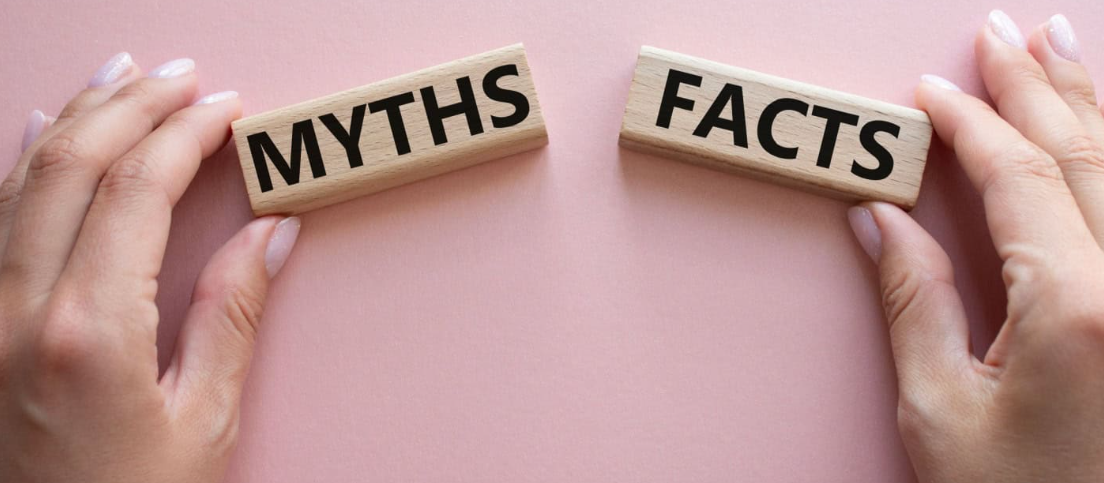UPDATED: October 2025 | Reading Time: 12 minutes
Taxes! The mere mention of the word makes many Indians nervous. But guess what’s even worse than paying taxes? Believing wrong information about them! Millions of people fall for expensive myths that sound like truth, but aren’t, every year.
From your neighbor’s “expert” advice to that WhatsApp forward from your uncle, tax myths spread quicker than wildfire. Because these misconceptions can take money out of your wallet, land you in trouble with the Income Tax Department or prevent you from actually saving the tax. It’s high time we do away with all these myths and understand the following about Indian tax laws.
For expert guidance on tax matters, visit Zista Legalis.
India’s Most Dangerous Tax Myths
Myth #1: If Your Income is Less Than ₹5 Lakhs You Don’t Need To File Returns
❌ THE MYTH:
“I earn only ₹4 lakhs a year. I don’t have to file ITR at all!”
✓ THE REALITY:
That partly is true, but it is fatally incomplete. Though there are thresholds for basic exemption (₹2.5 lakhs, ₹3 lakhs and ₹5 lakhs respectively for general citizens, senior citizens and super senior citizens under the old regime) you need to file returns if you:
- Your total income is more than the basic exemption limit
- You have put in over ₹1 crore into bank accounts in a year
- You also had long vacation stays in foreign countries costing more than ₹2 lakhs
- And your electricity bill crosses ₹1 lakh in a year
- You plan to request a refund of taxed taxes (even if income is lower than the exemption)
- Loans or Visa application (banks and embassies sometimes require ITR)
Even in the case of a non-mandatory filing, returns form a financial record and this may come handy if one wants to apply for loan or credit card or visa. It’s your proof of income!
Myth #2: Cash Trades Are Radically Private and Tax Haven
❌ THE MYTH:
“I’ll pay in cash, they won’t find out about it: Income Tax man.”
✓ THE REALITY:
Cash transactions are monitored very closely by the government. Here are the limits, as you should know:
| Type of Transaction | Cash Limit | What Happens If You Go Over It? |
|---|---|---|
| All payment in one go (single transaction) | ₹2 lakhs | Transaction is invalid, penalty possible |
| Total cash deposits in bank (in a year) | ₹10 lakhs | Bank reports to Income Tax Department |
| Purchase of jewelry, property etc. | ₹2 lakhs | Mandatory PAN card, transaction reported |
| Payment on account of loan repayment/credit card | ₹1 lakh | Transaction will be reported to tax authorities |
Note: The Income Tax Department has such fancy systems that track unusual cash movements. Significant cash transactions can also set off notices and investigations.
Myth #3: Life Insurance Purchase Automatically Results in Tax Savings
❌ THE MYTH:
“I am getting a ₹46,800 tax saving under Section 80C because I have taken a life insurance policy.”
✓ THE REALITY:
Only if you avail of deduction under section 80C will insurance save you tax, and there are conditions:
- Standalone policies: For plans purchased after April 1, 2012, the premium must not exceed 10% of the sum assured
- You actually have to claim the deduction while filing your ITR
- If you give up the policy within 2 years, you’ll even have to return the tax benefits
- The new tax regime (applicable from FY 2023-24): After the introduction of the new system, unless you voluntarily choose the old one, most deductions such as under 80C are not allowed.
Do not purchase insurance solely for tax savings. Buy it for financial protection. Tax benefit is just a bonus!
Perilous Myths That Could Get You in Trouble
Myth #4: If You’re Served a Notice, You’re Going to Jail
❌ THE MYTH:
“I got an Income Tax notice! Am I going to jail?”
✓ THE REALITY:
It’s common to receive a tax notice, and does not imply you are guilty of a crime. Most notices are:
- Intimation notices: These are nothing but simple information about your return processing
- Notices of inquiry: Requests for more information or documentaries
- Demand notices: seeking money for any additional tax if there’s mismatch
Only in serious cases such as deliberate tax dodging with large sums, fraud or repeated ignoring of notices do people land up doing time. The maximum number of cases are settled either through correct information or by paying the dues which are due.
For more information on tax compliance, refer to the Income Tax Department’s official website.
Myth #5: Home Loans Provide Infinite Tax Benefits
❌ THE MYTH:
“The more home loan I take, the tax I save. It’s unlimited!”
✓ THE REALITY:
There are some tax benefit limits with home loans:
Home Loan Tax Benefits Breakdown
- Repayment of Principal (Section 80C): Max ₹1,50,000
- Interest Payment (Section 24b): Up to ₹2,00,000 (if self occupied)
- Interest on Rent-free Property: Unlimited
- First-time Buyers Above (Section 80EEA): Max ₹1,50,000
Important conditions:
- Section 80EEA if House value is less than ₹45 lakhs and loan taken during period of April 2019 to March 2022
- For let-out property, full interest can be claimed without ₹2 lakh cap
- Construction must be finished in 5 years
- These perks are largely in old tax regime
Myth #6: Old People Don’t Pay Any Tax
❌ THE MYTH:
“My grandpa is 65 years old. He doesn’t pay any income tax.”
✓ THE REALITY:
The exemption limits are higher for senior citizens, but they still pay tax if the income exceeds the threshold:
| Category | Age | Basic Exemption (Old Regime) | Basic Exemption (New Regime) |
|---|---|---|---|
| Regular Citizens | Below 60 years | ₹2,50,000 | ₹3,00,000 |
| Senior Citizens | 60-80 years | ₹3,00,000 | ₹3,00,000 |
| Super Senior Citizens | Above 80 years | ₹5,00,000 | ₹5,00,000 |
Returns must be filed by senior citizens whose income is above these amounts. However, they enjoy benefits such as TDS not levied for bank interest up to ₹50,000 under Section 80TTB.
Money-Saving Myths That Are Actually Costing You Cash
Myth #7: March is the Best Time for Investing into Tax-Saving Schemes
❌ THE MYTH:
“I’ll park ₹1.5 lakhs in March to save on tax. That’s the best time!”
✓ THE REALITY:
Last-Minute Tax Planning in March is Bad Financial Planning. In any event, last-minute tax planning in the month of March is bad idea from a financial standpoint because:
- Tax saving: You may be forced to bet on wrong products just to save tax!
- You sacrifice higher returns by not spreading contributions through the year
- Some investments such as ELSS mutual funds are better off with systematic investment
- Hasty decisions result in selection of wrong insurance policies with low returns
Start tax planning in April! Distribute your investments over the year for more gain and less pain.
Myth #8: Agricultural Income is Tax Exempt at All Times
❌ THE MYTH:
“I declared ₹10 lakhs as agricultural income. It’s 100 percent tax-free, so no questions asked!”
✓ THE REALITY:
Though, income from agriculture is not taxable under section 10(1), but the Income Tax Department always keep an eye on these claims:
- You have to really own farmland and farm it
- Land should be in backward rural district (not having the status of municipal town having population more than 10,000)
- Agricultural income is aggregated with other incomes for the purpose of determining tax rates
- What about the documentations, land records, sale receipts, evidence of cultivation?
False agriculture income statement can invite prosecution and penalties.
Myth #9: NRIs are Not Liable to Pay Tax in India
❌ THE MYTH:
“I work in Dubai. I already pay tax in my home country and don’t need to pay any money as tax by India on my Salary.”
✓ THE REALITY:
NRI tax is a function of residential status and source of income:
- Money made and taken outside India: Non-taxable in India
- Income earned in India (Which Includes Rent, Capital Gain, and Interest): Taxable
- If you are in India for 182 days or more: YOU ARE TAXABLE ON YOUR GLOBAL INCOME
Basic exemption limits over, NRIs should file returns if Indian income crosses this limit.
Need professional help with NRI taxation? Contact Zista Legalis for expert advice.
Myth #10: The New Tax Regime is Always Better
❌ THE MYTH:
“The government announced new tax rules, so it has to be good for everyone.”
✓ THE REALITY:
There are lower tax rates with no deductions in new tax regime (default from FY 2023-24). It’s better only if:
- You don’t have much in the way of investments or insurance products
- You can’t claim home loan interest
- Your income is relatively straightforward
- You favor simplicity over squeezing out every possible deduction
The old rules are preferable if you’ve got a big stock portfolio, home loans, medical expenses or donations that qualify for deductions. You can change regimes each year.
| Annual Income | Old regime (with maximum deductions) | New regime |
|---|---|---|
| ₹5,00,000 | ₹0 | ₹0 |
| ₹8,00,000 | ₹23,400 | ₹25,000 |
| ₹12,00,000 | ₹1,07,400 | ₹1,15,000 |
Note: Old regime calculations – Maximum deduction of ₹1.5 lakhs of Section 80C is considered
-
⚖️ Think you know your rights at work? Discover the truth: 6 Hidden Legal Rights for Salaried Employees
Why These Myths Are Actually Harming You
But it’s not just that people believe tax superstitions about these payments they shouldn’t believe — believing those myths has consequences:
- Monetary Damage: You could possibly overlook tax-related legitimate-saving opportunities or invest in the wrong product
- Legal Issues: If non-filing or mis-filed, then penalty and interest along with notices possible
- Opportunity Cost: Money wasted paying taxes and penalty could have been invested
- Stress and Anxiety: The years of living in fear, scared that someone will catch you or fine you
- Reputation Loss: Tax issues may impact on getting loans, visa applications and finding work

Legal Myths About Tax You Still Believe — Busted!
How Are These Myths Born?
Tax myths are circulated through a variety of channels:
- Outdated Information: Tax laws change every year, but we remember the old ones
- Half Knowledge is Dangerous: Many a time, people hear half truths and fill in the gaps with assumptions
- WhatsApp Forwards: Fake news on steroids
- Bad Advice: Overwhelmed and unsupportive relatives and friends tell what worked for them when their situation is pretty different
- Terminology that Confuses: Tax terms can be convoluted and we all too often misunderstand them
Clever Ways to Stay Updated on Genuine Tax Rules
- Official Government Websites: Visit incometaxindia.gov.in for authentic information
- Budget Declarations: Keep an eye on the Union Budget each February
- Qualified Experts: Contact certified accountants or tax consultants for custom advice
- Income Tax Department’s Social Media: Get updates and clarification from the official handle
- Tax Helpline: Income Tax Questions? Reach out for assistance
- E-filing Portal: The portal has guides, FAQs and video tutorials on how to use it
The Bottom Line: Rely on Facts, Not Myths
Tax myths run rampant, and they’re never too far removed from anything resembling truth — at best serving the latter in broad swaths of misunderstanding. It pays to check with competent sources before making any financial decisions.
Keep in mind, the tax laws are supposed to be a way of creating a fair system for us not entrapment. Once you get to the actual rules, you’re able to sleep at night knowing that you’ve maximized legitimate savings and made plans for your finances that feel comfortable to you – no laying awake listening for footsteps of tax trouble outside your door.
Purge your money of myths. Seize control, by learning the facts and seeking advice when necessary, and staying in tune with changes to tax laws. Your financial future will absolutely love you for it!

Tax Myths Frequently Asked Questions
Q1: Can I file ITR from previous year if I forgot to file it earlier?
Yes, you can submit late or amended returns. You can file a belated return on or before December 31, 2024, for the FY 2023-24. There is also the possibility of filing a revised return within 24 months of the end of the assessment year, though penalty and interest may be imposed.
Q2: Must I declare gifts from my relatives in my tax returns?
Gifts from certain relatives (parents, siblings, spouse, etc.) are completely tax exempt no matter how much it is. Gifts received from non-relatives exceeding ₹50,000 in a year are taxable. That said, gifts, including marriage ones, are free of tax from anyone.
Q3: Do we have to pay tax in India on our income from cryptocurrencies?
Yes! Under Section 115BBH, all cryptocurrency income is taxed @ flat rate of 30% with effect from April 1, 2022. Also, the TDS at 1% is also applicable on crypto transactions over ₹10,000 in a year. You can’t set your losses on cryptos against other forms of income or even other gains on cryptos.
Q4: My employer has already deducted TDS from my income, do I still need to file ITR?
Yes, in case your gross income is more than the basic exemption limit, you should file ITR even if TDS is already deducted. If more TDS was deducted, you need to file in order to claim refund and it’s a requirement by law irrespective of the TDS in your case.
Q5: May I deduct under both the old and new tax regimes?
No, you have to have one regime for the whole financial year. The new regime provides for lower tax rates but no deductions (other than standard deduction and employer’s NPS contribution). The old regime is having higher rates, but it also allows all the traditional deductions including 80C, 80D, HRA etc.
Q6: What if I am unable to file the ITR by the deadline?
You still have the option to file a belated return with ₹5,000 (₹1,000 if income is up to ₹5 lakhs) as late fee. But you lose some advantages such as carrying forward losses and face interest, if applicable, under section 234A on the tax due.
Q7: Stock Market Profit – Are they 100% TAX FREE after 1 Year?
No, this is a common myth. Capital gains on equity shares held for over 1 year are subject to LTCG tax of 12.5% provided the gains exceed ₹1,25,000 per annum (from FY 2024-25). Short-term gains are taxed at 20 percent. The earlier ₹1 lakh exemption on LTCG is no more.
Q8: I AM A HOUSEWIFE, DO I NEED TO FILE INCOME TAX RETURN?
If the housewife’s income from any source (such as fixed deposits, rental income, capital gains etc) is above the basic exemption limit then she has to file ITR. No salary doesn’t necessarily mean no tax liability. Even if one’s income falls below the limit, filing provides a financial record that is valuable for loans and other purposes.
For personalized tax planning and legal consultation, visit Zista Legalis today.



